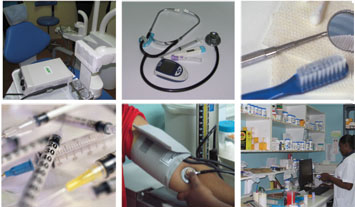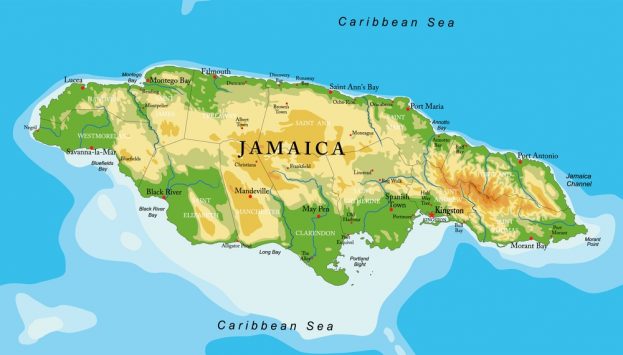
One of the challenges of getting back to work after COVID-19 will be conforming to new standards, or to old standards that will have to be enforced vigorously in this period. This has come to mind as inspection and compliance has previously been very difficult to carry out effectively and this is not limited to any size private businesses, or to the public sector, in spite of the fact that legislation exists. The danger or hostility in many communities has exacerbated this.
My current concerns have been heightened by the current and future plans for reopening sectors of the economy starting with travel and tourism; shopping; entertainment; BPO services; and many others that have been dormant for four or more months. One thing is certain: proper compliance requires discipline; consistency; inspection; prompt remedial action; and if not done properly then adherence costs increase, and the possibility of fines arise.
Since the COVID-19 two such protective systems have become permanently linked but at this time do not have a single Ministerial post that covers both. These areas are Public Health and OSHA legislations. Both seem to address the areas of wellness through public cleanliness; and workplace provisions for customers and employees.
Let me start with Public Health provisions that are in need of attention in a nation that says it respects citizens and visitors equally, and that is public sanitary conveniences, sewage and garbage removal, and the need for household inspections.
When I was a youngster in the 1950’s the Public Health Department inspected households, private companies, markets, and public entertainment venues. At the household level: grease traps; waste disposal/sewage; garbage heaps; and in the case of premises with no indoor sanitation this includes pit toilets, and disposal of water from open drains; and other potential mosquito breeding grounds.
The evidence of inspection was recorded monthly on a white card that was attached by to a prominent place (e.g. inside each toilet stall or at the grease trap) signed and dated by the inspector, and reviewed and signed every quarter by the supervisor. This was a system inherited from our Colonial rulers that was perhaps one of the appropriate examples of their organizational structures that worked well.
We discontinued this by our own mismanagement, ineptness, and poor allocation of resources that would have maintained order. We did not hire the appropriate number of inspectors, and we failed to encourage the intensive training that was necessary to maintain the basic public health conditions for the ordinary citizen.
This has negatively impacted schools; infirmaries; hospitals; jails and lock-ups; police stations; gas stations; entertainment venues; doctors’ offices; labs; retail stores; wholesales; markets; and the list goes on. This has allowed faeces in gullies, urination on the sidewalk, release of water onto public roads, garbage in the sea, and generally nasty living conditions. This is a crime against the people.
The Occupational Safety and Health Administration Act was signed into US Law in 1970 by then President Richard Nixon. There is no doubt that the Law has been modified and expanded over the intervening years and has specific provisions for a wide range of industries that existed or were developed/invented over the intervening years. Therefore it has grown to incorporate what we call Public Health; Labour environment and associated work safety; and the Factories Act.
This is easily commendable with the exception that it was immediately championed by the International Labour Organization, and that has delayed widespread application thus far by creating a potential chasm between labour; employers; and government policy implementation except in developed countries. This has regrettably caused great delays in modernizing standards in both safety and health to the detriment of all three parties. The immediate resolution as exposed by COVID-19 is now a requirement in a new post-virus world.
The concept of highest standards affects every aspect of health in a global way including working conditions; living conditions; and civic and legal responsibilities.
In banking and financial services, the provision of adequately maintained sanitary conveniences for staff and customers will be mandatory and should be enforced by law. In a similar manner the same standards must be the same for tax offices and government interaction points with the public.
The same rules encompass parks (including Hope Gardens, Castleton, Holywell, rafting, waterfall attractions, amusement parks), and the worldwide standards would or should not be of any lower standards than Disney Theme Parks. By the way these would also apply to street dances and other public entertainment.
Public health regulations also include supermarkets, smaller shops and wholesalers; street vendors, markets, butchers, and all places involved in food or other retail sales. This brings most informal commerce into an international standard of public health safety.
The obvious conclusion is that OSHA brings better social conditions, but at the same time will impose increased costs of compliance for those whose actions are opposed to a clean and safe environment.
We have learned nasty habits like urinating in areas where fruit and vegetables are displayed on sidewalks, prepared at homes with no running water, sewage, and garbage disposal. These places are not inspected at a frequency that will require compliance and rectification.
Therefore the Government will have to budget for considerable inspection and sanctions on an annual basis. This will reduce their discretionary spending even at times of electoral campaigning. Perhaps this is one reason why we seem to be avoiding changes, until the implications of spreading diseases like Covid-19 truly sink home that we can no longer predict infection, nor control it by piecemeal reactions.



